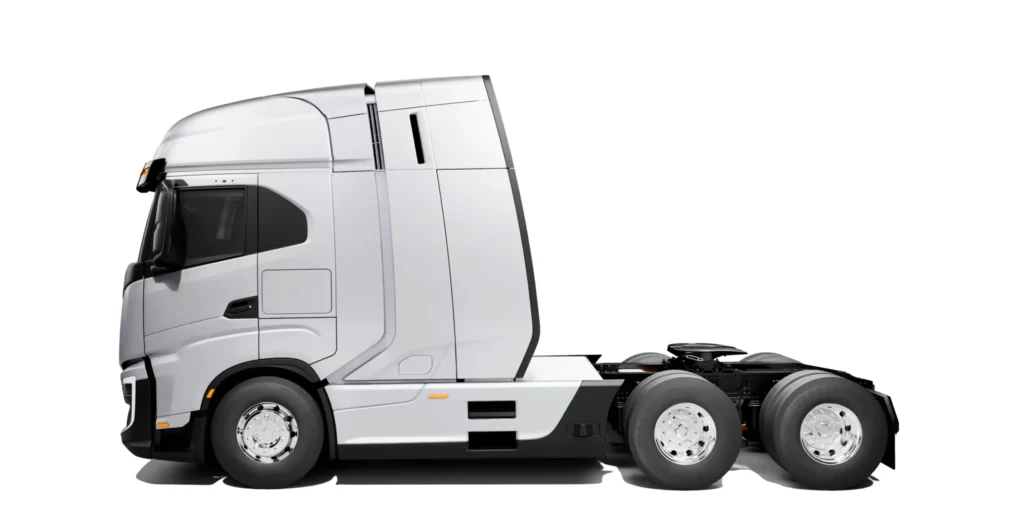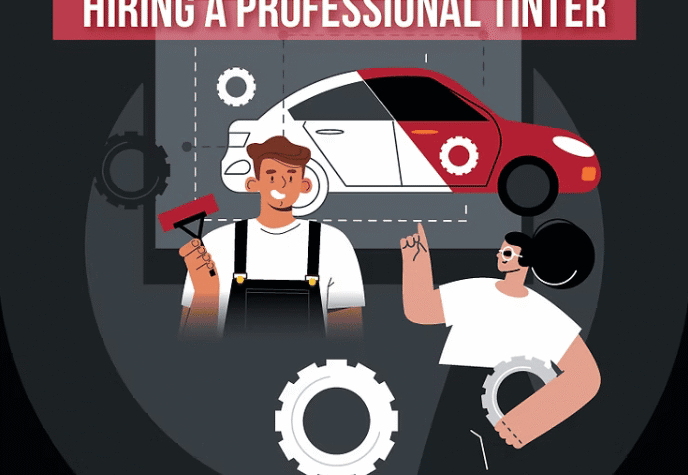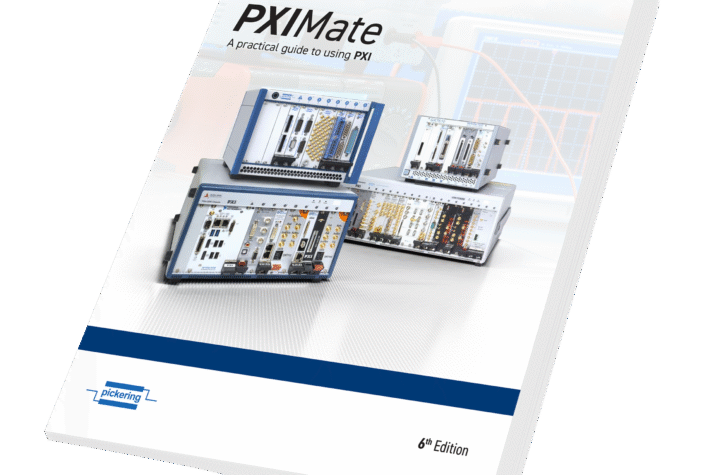
Navigating the Future of Sustainable Transportation with ETHERO Truck + Energy
In a pivotal era marked by a growing emphasis on sustainable transportation, Automotive Industries had the privilege of engaging in a comprehensive interview with Dave Rogers, the Electric Truck Division Director at ETHERO Truck + Energy. As a dynamic figure steering the electric truck division, Rogers sheds light on critical aspects of the industry, including the impact of government incentives, strategies for zero-emission fleet transition, and the unique features of innovative hydrogen-electric technology
Government Incentives and Charging Infrastructure:
The conversation begins by addressing the recent $623 million charging network grant from the Biden administration. Rogers emphasizes the pivotal role charging infrastructure plays in the nationwide adoption of zero-emission vehicles. He articulates ETHERO’s commitment to leveraging these incentives to facilitate the growth of charging networks, making it easier for fleets to embrace sustainable alternatives. The discussion underscores the importance of swift transition to capitalize on stackable incentives available on a first-come, first-served basis.
Zero-Emissions Fleet Transition:
With a focus on government fleet vehicles, Rogers articulates ETHERO’s role as a full solutions provider, considering not only the vehicles but also the charging, service, and maintenance aspects. He details the variety of energy solutions offered, including mobile charging units and stationary charging depots, catering to the diverse needs of large-scale operators gradually transitioning their fleets. The emphasis on long-term planning, regulatory compliance, and immediate equipment requirements showcases ETHERO’s holistic approach.
Nikola FCEV and Medium-Duty Product:
Rogers provides insights into the Nikola FCEV, highlighting its impressive range, quick refueling time, and application versatility in metro-regional trucking. The interview also unveils ETHERO’s partnership with Harbinger, showcasing a medium-duty option that adds flexibility to the product lineup. This strategic move aligns with fleet owners’ demands for versatile, adaptable chassis options.
Advantages of Hydrogen-Electric Technology:
Comparing hydrogen-electric technology to battery-electric solutions, Rogers accentuates the Nikola FCEV’s extended range and rapid refueling time, crucial for long-haul trucking. He emphasizes the environmental impact, showcasing the FCEV’s potential to avoid significant carbon dioxide emissions associated with traditional diesel-powered trucks.
Addressing Concerns and Challenges:
As the industry confronts challenges like range anxiety and infrastructure availability, Rogers discusses ETHERO’s proactive approach. Through the energy services division, the company empowers customers to address concerns head-on, facilitating a smoother transition through infrastructure ownership or leasing.
Future Roadmap for ETHERO Truck + Energy:
Looking ahead, Rogers outlines ETHERO’s vision for the future, emphasizing the company’s commitment to evolving alongside the zero-emissions trucking landscape. He highlights the expansion of ETHERO’s product offerings and team, along with its dedication to education and collaboration within the industry.
In summary, this interview provides a comprehensive overview of ETHERO Truck + Energy’s role in advancing sustainable transportation, highlighting its strategies, innovative products, and commitment to addressing challenges for a greener future.
Automotive Industries Interview with Dave Rogers, Electric Truck Division Director, ETHERO Truck + Energy
Automotive Industries: Hi Dave, With the recent $623 million charging network grant from the Biden administration, how do you see this impacting the growth of charging infrastructure nationwide, and how does ETHERO Truck + Energy plan to leverage these incentives for the benefit of its customers?
Rogers: Charging infrastructure is pivotal to ensuring that fleets across the country can meet the necessary federal and state requirements for zero-emissions vehicles. The biggest barrier we see for fleets to make the transition to electric is the limited infrastructure that exists in some parts of the country, questions about how sustainable that infrastructure is, and its capacity for growth. ETHERO’s energy division works with customers to find solutions that work for their unique needs, and right now that looks like owning or leasing mobile or onsite charging stations. This first phase of grants will be a game changer to developing a stronger charging network and ultimately make it easier for fleets to tap into existing infrastructure as a failsafe to their own networks.
Of course, this shift will not happen overnight. The other component is the incentives that are out there, many of which are available on a short-term basis and are first come, first served. The sooner fleets start transitioning to zero-emissions trucks, the more stackable incentives they will be able to use to purchase these vehicles and infrastructure plans to accompany them enabling them to transition faster for less expense.
As Federal policy continues to evolve around Public Access charging it will become increasingly important to advocate for funding that enables EV adoption on a broad scale, regardless of vehicle size and location so this transition becomes easier to make.
Automotive Industries: Given the focus on transitioning government fleet vehicles to zero-emissions, can you elaborate on the strategies and solutions ETHERO Truck + Energy offers to assist government agencies in adopting and maintaining large-scale zero-emissions vehicle operations?
Rogers: ETHERO is focused on being a full solutions provider – we place our value upon understanding customers’ entire sustainability objective. So, we look beyond the truck itself to consider the charging, service, and maintenance that is required for sustaining a zero-emissions fleet, or whether a complete enterprise energy solution makes sense at the facility level. Our customers are pleasantly surprised to learn that there are a variety of energy solutions that can meet their needs. There are small and large charging trailers and portable charging units that require a generator or utility, as well as stationary unit(s), which can range from a single charger to an entire charging depot (behind the fence), and utility-tied or by microgrid technology (generator, energy storage systems, solar). Large-scale operators do not always transition their entire fleet to zero-emissions trucks all at once. It happens over time in increments. Our trained electric truck sales associates and e-mobility specialists work with fleet managers to determine proper replacement equipment based on current and expected operations (battery electric or hydrogen fuel cell vehicles). We will help craft an initial 5-year plan for fleet additions, fleet scrappage/sales, and electrification conversion (based on current fleet mix, regulatory compliance, and future needs) and establish immediate equipment requirements.
Automotive Industries: Could you provide more details about the Nikola FCEV hydrogen fuel cell long-haul truck and the new medium-duty product that ETHERO Truck + Energy? What unique features or capabilities do these vehicles bring to the market?
Rogers: The Nikola FCEV represents a significant leap forward in the pursuit of zero-emissions trucking. It is a hydrogen-powered cabover made for longer or continuous metro-regional applications. It has a projected range of 500 miles, refuels in 20 minutes or less, and generates 536 continuous horsepower, making it among the longest ranges of all commercially available zero tailpipe emission Class 8 trucks. It is designed to meet a wide array of hauling needs, with versatile applications ranging from drayage and intermodal to metro-regional truckload operations.
ETHERO announced our partnership with Harbinger. Harbinger’s electric stripped chassis is suitable for upfit to walk-in van, RV, utility, etc. The scalable chassis, built to support all popular medium-duty body types available today, was designed from the ground up to address the unique performance, durability, and lifespan expectations required of Class 4 to Class 6 vehicles. Harbinger is unique in the medium-duty marketplace, producing and manufacturing the chassis, powertrain, and battery packs of its EV platform in-house. Adding a medium-duty option as flexible and sophisticated as Harbinger’s technology to our product offerings is something we have wanted to do since ETHERO’s inception. Something all fleet owners are looking for is versatility. Being able to offer this functional, adaptable chassis from Harbinger alongside our other zero-emissions trucks opens more doors for companies interested in EV technology at a level that fits their operational goals.
Automotive Industries: In showcasing the Nikola FCEV, what advantages does hydrogen-electric technology offer for long-haul trucking, and how does it compare to battery-electric solutions in terms of range, efficiency, and environmental impact?
Rogers: In comparison to battery electric trucks, the Nikola FCEV has a longer range and shorter refueling time, which is a huge advantage to long haul trucking. In terms of environmental impact, on average, one FCEV truck is expected to avoid approximately 29 gallons of diesel fuel per day which combusted would produce roughly 106 metric-tons of carbon dioxide emissions annually.
Automotive Industries: As the industry progresses towards zero-emissions fleet implementation, what are some of the common concerns or challenges you encounter, and how does ETHERO Truck + Energy address these challenges to ensure a smooth transition for its customers?
Rogers: Range anxiety and infrastructure availability are still concerns depending on where customers operate geographically. The culture and adoption of zero-emissions vehicles and charging infrastructure out in California is vastly different from eastern states, especially when it comes to hydrogen, as the charging infrastructure just does not exist yet on the east coast on a large scale. This is one of the reasons we empower our customers through our energy services division, helping them buy or lease their own infrastructure and implement their zero-emissions strategy now before waiting and playing catch up later. Attending demonstrations and test drives, determining fueling, and discovering incentive options and finance all aid in planning out a smooth transition.
Automotive Industries: Looking ahead, what is ETHERO’s vision and roadmap for the future, especially considering the evolving landscape of electric and hydrogen technologies? Are there any upcoming innovations or partnerships that you can share to give us insight into ETHERO’s continued commitment to sustainable transportation?
Rogers: Since ETHERO first launched in January 2023, we have added three truck products to our inventory offerings and expanded our team from our headquarters in Mechanicsville, Virginia, to additional dealership locations in Elkridge Maryland, and Stockton California. We look forward to evolving alongside the zero-emissions trucking landscape and being part of the bigger conversations. ETHERO is going to react to where its fleet customers need us. If that means facility location, mobile service setup, or help identifying where to charge or fuel trucks, we are the fleets’ zero-emissions consultants. We will continue to work with local utilities, trade organizations and municipal groups to identify charging/fueling opportunities that best suit our customers’ needs.
There is also an underappreciated educational element to the EV evolution. We are committed to continuing to work with our partners in the zero-emissions transportation space, including manufacturers of trucks and infrastructure technology and educational institutions creating a space for these conversations, like the University of North Carolina CleanTech Summit. Our universities and colleges are training the next generation of electric vehicle drivers, engineers, and technicians. When we support each other, we are helping educate our communities and our transportation industry workforce. The ETHERO team is always looking for opportunities to learn and collaborate with our peers, with our next event taking our team to the Port of Stockton for the 2024 Trucking with Clean Fuels Conference.












More Stories
Professional vs. DIY Tinting: What You Should Know
New updated edition of “PXIMate” reference guide for T&M engineers available from Pickering Interfaces
5 Mistakes That Can Ruin Your Car Accident Claim